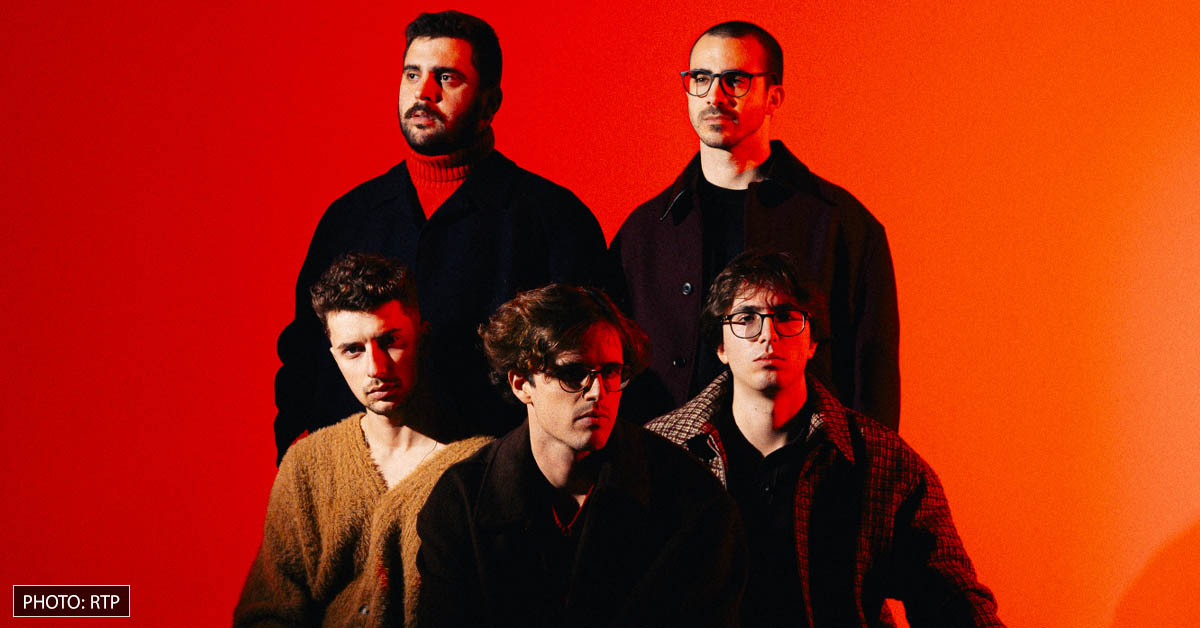
Despite finishing 21st in the Eurovision 2025 final, “Deslocado” by Napa has become the contest’s most-streamed song for a day, dominating charts and sparking a global digital success.
Although the Portuguese band Napa and their song “Deslocado” did not achieve a notable result at Eurovision 2025 in Basel—ending up 21st in the final—their impact has been felt elsewhere. Initially ranked at the bottom of betting tables throughout the season, “Deslocado” has become a global hit, inspiring tens of thousands of TikTok videos and now for the first time holding the title of the daily most-streamed Eurovision 2025 song.
A Dramatic Turn: Official Streaming Chart Upset
Today, according to the Eurovision Charts Twitter account, the Portuguese entry “Deslocado” by Napa has surpassed the Estonian song “Espresso Macchiato” by Tommy Cash for the first time, now boasting the daily highest number of streams among all Eurovision 2025 tracks, with 573,684 Spotify streams.
Most-streamed #Eurovision 2025 songs on Spotify (July 7):
🇵🇹 Deslocado – 573,684
🇪🇪 Espresso Macchiato – 520,802
🇸🇪 Bara bada bastu – 383,493
🇩🇪 Baller – 217,091
🇳🇴 Lighter – 196,470
🇦🇹 Wasted Love – 153,506
🇪🇸 Esa diva – 141,721
🇮🇸 Róa – 120,752— Eurovision Charts (@esc_charts) July 9, 2025
from the Eurovision Stage to Digital and Social Platforms
The success of “Deslocado” extends far beyond streaming statistics. The Portuguese song now joins the ranks of Eurovision entries that, while not winning the contest, have captured the audience’s hearts. This is a true cultural phenomenon—tens of thousands of TikTok videos, unique YouTube clips, and a wave of fan tributes have turned the song into a symbol of emotional connection and personal identity, especially among young people of the digital migration generation. Within Eurovision fan communities, it has been repeatedly noted how the lyrics—dealing with longing, alienation, and the immigrant experience—have forged a cross-border bond. Many Eurovision enthusiasts have remarked that the song manages to touch on themes that many winning entries do not, illustrating how the streaming era provides a new stage for songs that may not have ranked highly in the final itself.
Napa’s Journey: From Last in the Odds to Historic Success
Napa, a young Portuguese band comprised of five musicians, was chosen to represent Portugal after winning the “Festival da Canção 2025” national selection. Despite entering the Eurovision final in Basel with only a 14% qualification chance and finishing 21st out of 26, the band surprised the music world—not just thanks to their live performance, but primarily due to the song’s success on streaming charts and TikTok. During the contest preparations, no one anticipated the magnitude of the digital triumph that would follow.
Expert Analysis: Why Is “Deslocado” Captivating Audiences?
 The success of a song like “Deslocado”—initially sidelined by odds and predictions—highlights a new trend in Eurovision: the shift from the influence of jury panels and televoting to the power of digital communities and streaming platform algorithms. Musically, the band blended elements of traditional Portuguese folk with modern production, heartfelt and personal lyrics, and a rhythm that easily connects with dance floors and viral videos. The song has become an anthem for thousands of young people worldwide, who found in it a voice for feelings of alienation, migration, and longing for home. “Deslocado” will be remembered as one of Eurovision 2025’s standout songs—not because of its final ranking, but because of its place in listeners’ hearts.
The success of a song like “Deslocado”—initially sidelined by odds and predictions—highlights a new trend in Eurovision: the shift from the influence of jury panels and televoting to the power of digital communities and streaming platform algorithms. Musically, the band blended elements of traditional Portuguese folk with modern production, heartfelt and personal lyrics, and a rhythm that easily connects with dance floors and viral videos. The song has become an anthem for thousands of young people worldwide, who found in it a voice for feelings of alienation, migration, and longing for home. “Deslocado” will be remembered as one of Eurovision 2025’s standout songs—not because of its final ranking, but because of its place in listeners’ hearts.
“Deslocado” (translated as: “Displaced”) is the song that will be performed by NAPA band, representing Portugal in Eurovision 2025 in Basel, Switzerland. Portugal finished 21st with 50 points, ranked 19th in jury vote and 21st in public vote.
Eurovision 2025: This will be Portugal’s 56th participation in the Eurovision Song Contest. Portugal joined the competition in 1964 and achieved its best result in Eurovision 2017 when singer Salvador Sobral won first place with the song “Amar pelos dois.”

